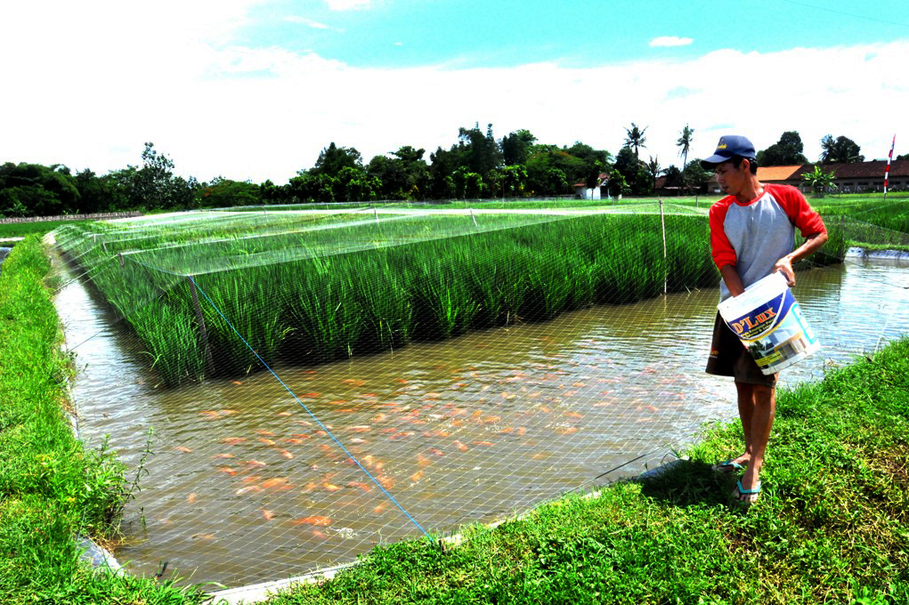Farmers in Sleman, a district of Yogyakarta, has been using a method called "rice-fish farming" to boost their income and promote a more ecosystem-friendly approach to rice farming by avoiding the use of pesticides.
Rice-fish farming, a method of planting rice and breeding fish at the same time, was introduced by the UN Food and Agriculture Organization (FAO) in close collaboration with the Maritime Affairs and Fisheries Ministry in late 2015 in Sleman, Yogyakarta, and Limapuluh Kota, another district in West Sumatra.
Rice-fish farming is a counter to modern, intensive farming techniques that use excessive amount of pesticides. Rice-fish farming drastically reduces the level of chemical fertilizers used by farmers.
Rice-fish farming, better known locally as "minapadi," has already boosted rice production and hence the farmers' income, as well as pushed up the nutrition levels contained in the rice that they produce.
An FAO report on the program recorded an increase in average harvest from 6.5 to 9.3 tonnes per hectare with higher quality rice being produced across the board.
"It is really gratifying to see how the re-introduction of traditional minapadi with innovative techniques has taken off so well in Sleman," FAO Representative in Indonesia Mark Smulders.
"The enthusiasm of the farmers speaks for itself: we have managed not only to increase incomes through the sale of fish, but have actually maintained, even increased, rice productivity, while also providing the local population with an important source of protein for better nutrition," he added.

The rice-fish farming technique has also been shared with farmers from across the Asia-Pacific region and beyond, with representatives from 15 countries visiting Sleman to witness the program in situ.
The FAO has contributed about half a million US dollars to develop and demonstrate the good practice, with around 500 farming families benefiting directly from the program.
"It is now time for this rice-fish farming system to be scaled up to ensure a much larger number of farming families can have a better life, while also benefiting rural communities more broadly through stepped-up economic activity and improved access to nutritious food," Smulders said.
A number of government officials, including Safri Burhanuddin, the deputy for Human Resources, Knowledge and Technology and Maritime Culture at the Coordinating Ministry for Maritime Affairs, and Musdhalifah Machmud, deputy for Food and Agriculture Affairs at the Coordinating Ministry for Economic Affairs, visited rice-fish farming demonstration plots in Cibluk Village in Margoluwih, Sleman, last week to observe the progress on the pilot project and to meet with farmers.



















